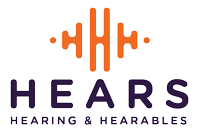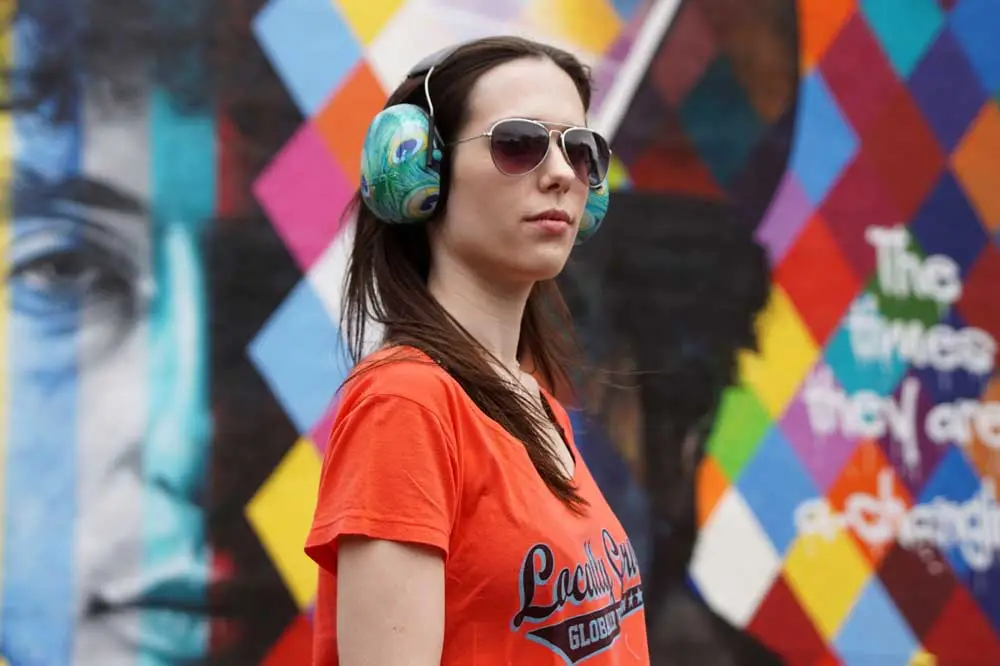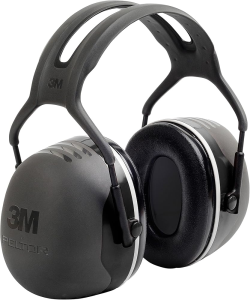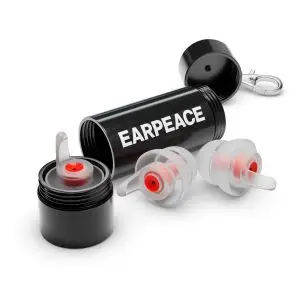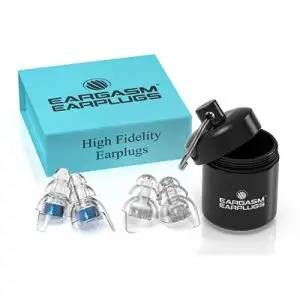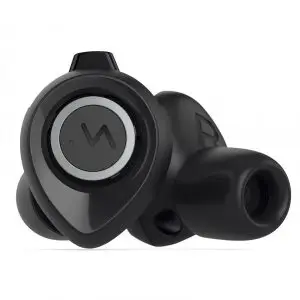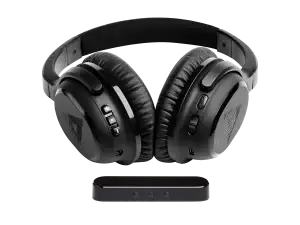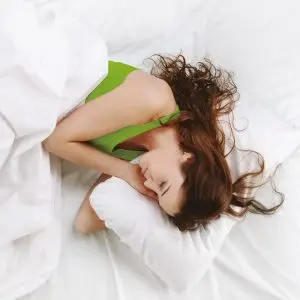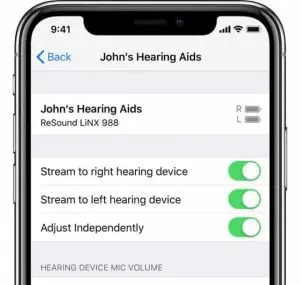Hearing Protection Solutions for Every Situation: Your Auditory Health Partner
Hearing protection is crucial for safeguarding your auditory health and overall well-being, as prolonged exposure to high levels of noise can have a range of adverse effects on your physical and mental health. Here we will discuss some key reasons why hearing protection is important. Covering topics such as hearing loss, tinnitus, heart disease, and other health concerns related to noise exposure:
1. Hearing Loss:
Noise-induced hearing loss (NIHL) is a common and irreversible condition resulting from exposure to loud sounds over time. When you are exposed to noise levels exceeding 85 decibels (dB) for extended periods, the sensitive hair cells in your inner ear can become damaged. This damage leads to hearing impairment. Consistent use of hearing protection devices, like earplugs or earmuffs, can significantly reduce the risk of NIHL.
The best hearing protection for preserving your auditory health depends on the environment and level of noise exposure you’re facing. Here are some recommendations for different scenarios:
Loud Rock and Roll Concerts:
For music enthusiasts attending concerts, filter-type hearing protection is an excellent choice. These earplugs are designed to attenuate noise evenly across different frequencies. This means you can still enjoy the music while protecting your ears.
High-fidelity musician’s earplugs are a popular option for concertgoers as they offer a more natural sound experience without distortion.
Industrial Work Environments:
In loud industrial settings, it’s crucial to use the highest level of noise reduction possible. Foam or silicone earplugs, which are designed to block out sound effectively, can be used. Ensure they are properly inserted for maximum protection.
Additionally, wearing over-ear earmuffs on top of earplugs can provide even greater noise reduction, creating a dual protection system.
Shooting Ranges:
Shooting firearms can expose individuals to extremely loud noises. In such cases, specialized shooting earmuffs or custom-molded earplugs designed for firearms use are recommended.
These protection options often have a high noise reduction rating (NRR) to safeguard against the sharp and intense sound of gunshots.
Concentration and Studying in Noisy Environments:
If you need to focus in a noisy environment, consider noise-cancelling headphones. These can effectively reduce background noise, allowing you to concentrate better.
In addition, you can wear foam earplugs underneath noise-cancelling headphones for an added layer of protection.
Sleeping in Noisy Neighborhoods:
For individuals who need to sleep in noisy areas, foam earplugs or silicone earplugs can be comfortable and effective in reducing environmental noise.
White noise machines or smartphone apps can also help mask disruptive sounds while sleeping.
Swimming and Water Activities:
Custom-made, waterproof swim plugs or silicone earplugs are essential for protecting your ears while swimming or engaging in water sports.
These earplugs create a tight seal to keep water out of your ears and prevent ear infections.
Hunting and Outdoor Activities:
Hunters can benefit from electronic earmuffs that amplify ambient sounds while instantly blocking out loud gunshots. These provide situational awareness while protecting your hearing.
Remember that the best hearing protection should not only be suitable for the noise level but also comfortable and easy to wear for extended periods. It’s important to choose protection that fits properly and is designed for your specific needs. Thus ensuring your auditory health remains intact in various noisy environments.
2. Tinnitus:
Tinnitus is the perception of ringing, buzzing, or other sounds in the ears when no external sound source is present. Prolonged exposure to loud noises is a leading cause of tinnitus, and it can be a persistent and distressing condition. Protecting your ears from excessive noise can help prevent or mitigate the development of tinnitus.
To mitigate the risk of tinnitus, it is essential to find well-fitting hearing protection that effectively reduces noise exposure. Just as we emphasized above for protecting one’s hearing in various environments.
3. Stress and Mental Health:
Excessive noise exposure can lead to increased stress levels and negatively impact mental health. Chronic noise exposure can contribute to irritability, anxiety, and even sleep disturbances, affecting your overall well-being. Reducing noise exposure through hearing protection can help alleviate these stressors.
Research has consistently demonstrated the profound impact of stress on mental health. High levels of chronic stress have been linked to a variety of mental health issues, including anxiety disorders, depression, and even more severe conditions like post-traumatic stress disorder (PTSD). The physiological response to stress, involving the release of stress hormones such as cortisol, can lead to changes in brain structure and function. Particularly in areas related to emotion regulation and cognitive functioning. Chronic stress can disrupt sleep patterns, impair concentration, and contribute to the development of mood disorders. Moreover, individuals with pre-existing mental health conditions may experience exacerbated symptoms when exposed to prolonged stressors. Understanding the strong association between stress and mental health underscores the importance of effective stress management strategies in promoting emotional well-being and overall psychological resilience.
4. Cardiovascular Health:
Recent research suggests a link between long-term exposure to noise pollution and an increased risk of heart disease. Noise-induced stress responses can elevate blood pressure and release stress hormones, which may contribute to heart-related issues over time. Wearing hearing protection can help mitigate the potential cardiovascular effects of noise exposure.
Research has provided compelling evidence linking noise pollution to an increased risk of heart disease. Prolonged exposure to high levels of noise, especially in urban areas near busy roads or airports, has been associated with adverse cardiovascular effects. Studies have shown that chronic noise exposure can lead to elevated blood pressure, disrupted sleep patterns, and increased stress hormone release. All of which contribute to a higher risk of developing heart disease. The noise-induced stress response can trigger inflammation and oxidative stress, which are known contributors to atherosclerosis, hypertension, and other cardiovascular conditions. As a result, mitigating noise pollution through urban planning, noise barriers, and personal protective measures like ear protection can play a crucial role in reducing the burden of heart disease in noisy environments.
5. Communication and Safety:
In noisy environments, hearing protection can ensure that you maintain effective communication and safety. When you’re exposed to loud sounds, it can be difficult to hear important warnings, instructions, or signals, which can be hazardous in various settings, including industrial workplaces and construction sites. Hearing protection allows you to stay alert and responsive in noisy conditions.
Firefighters, for instance, often face the challenge of communicating effectively in extremely noisy and chaotic environments while responding to emergencies. To overcome this hurdle, they employ a variety of specialized communication techniques and equipment. Just recently we spoke to our Hopkins, MN Firefighters and they shared they commonly use two-way radios or communication systems built into their helmets, which are designed to filter out background noise and provide clear, direct communication with their team members and incident commanders. In addition to audio communication, they may also use hand signals and non-verbal cues to convey important information when verbal communication becomes difficult. Moreover, they shared, that their fire department and others often conduct extensive training to ensure that firefighters can communicate efficiently under high-stress and high-noise conditions. As clear communication is paramount to their safety and the success of their operations.
6. Workplace Regulations Impact Hearing Protection for Your Health:
Many workplaces have established noise exposure regulations to protect employees from harmful noise levels. Employers are often required to provide and mandate the use of hearing protection in high-noise environments to comply with occupational safety standards. Adhering to these regulations helps prevent work-related hearing problems.
Many individuals who have worked in noisy environments without hearing protection and later adopt the practice of wearing appropriate hearing protection often report a noticeable reduction in their end-of-day fatigue. Prolonged exposure to high noise levels can be physically and mentally exhausting. As the constant barrage of sound can lead to stress, irritability, and cognitive fatigue. When these individuals begin using hearing protection, they experience a significant reduction in noise-related stress. This can result in increased comfort and concentration throughout the day. This, in turn, leads to improved productivity and a decrease in overall tiredness when the workday concludes. Underlining the crucial role of hearing protection in promoting both auditory health and overall well-being.
Hearing Protection for your Health:
Protecting your hearing is important for preventing conditions like hearing loss and tinnitus, and reducing the risk of associated health concerns such as heart disease and stress-related issues. Consistently wearing appropriate hearing protection when exposed to loud environments is a simple yet effective way to safeguard your well-being and ensure a higher quality of life.
At Hears Hearing & Hearables, we prioritize your auditory health and understand the significance of protecting your hearing in various environments. Buying hearing protection from us is a simple and beneficial process.
Protecting your hearing in various environments is a priority. At Hears Hearing & Hearables, we are committed to providing you with the best hearing protection solutions to safeguard your auditory health effectively. Browse our selection, consult our experts, and make the choice that suits your unique circumstances. Your hearing is invaluable, and we’re here to help you preserve it.
Thanks for caring, Kim
